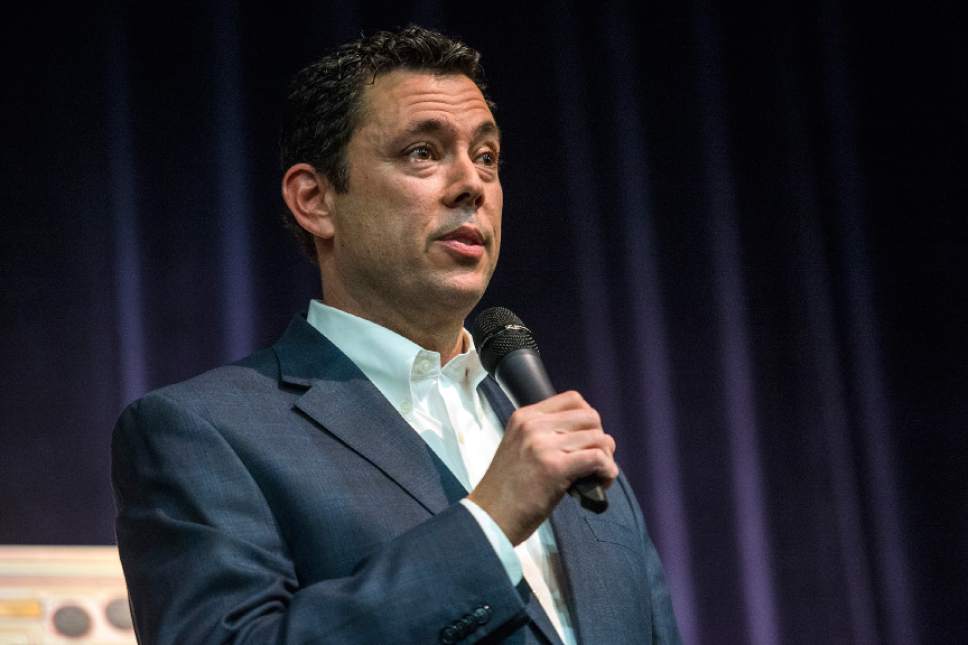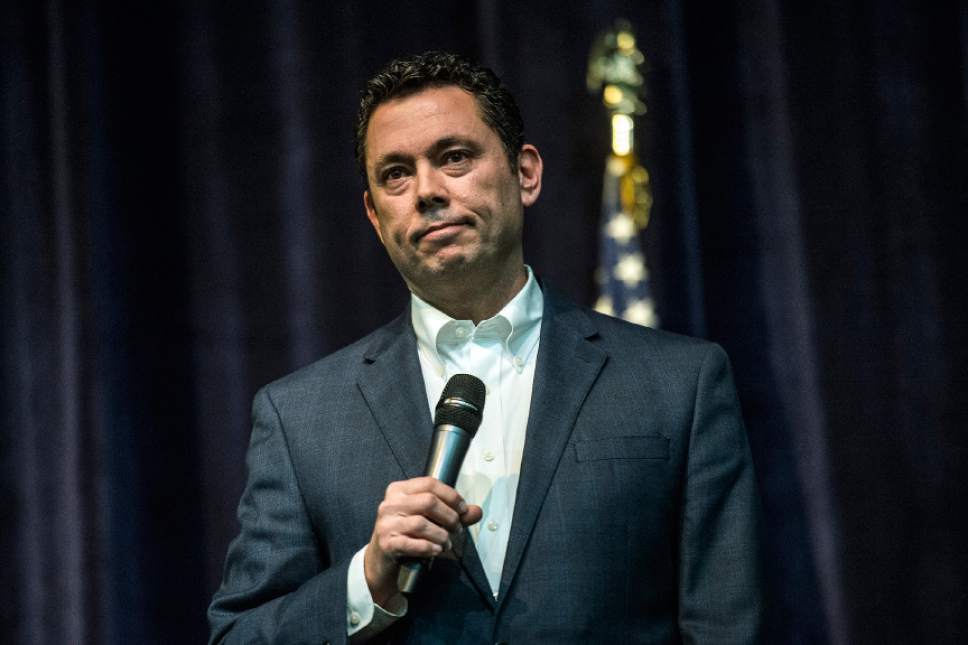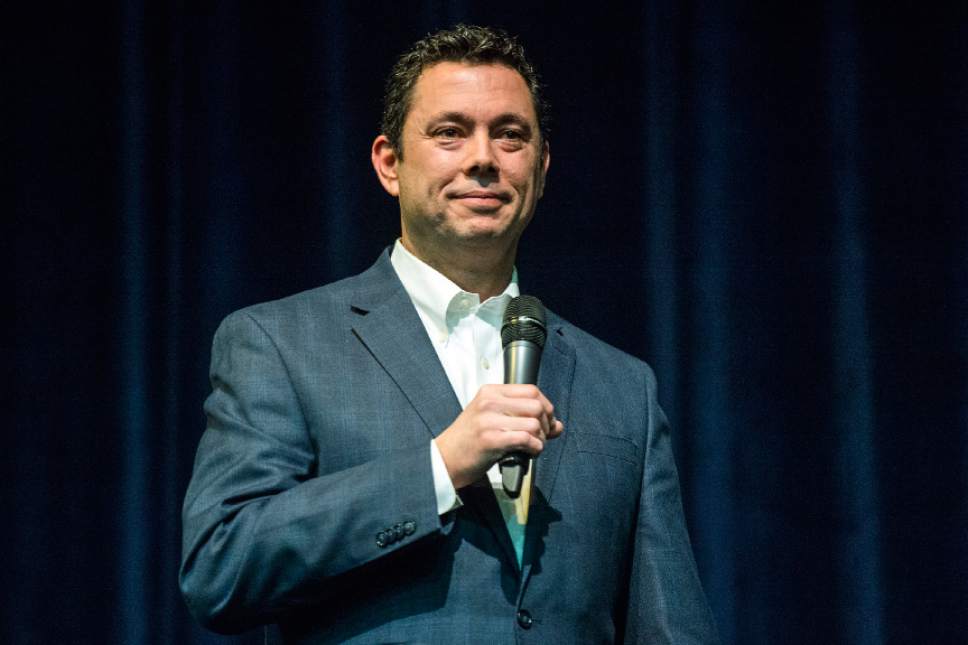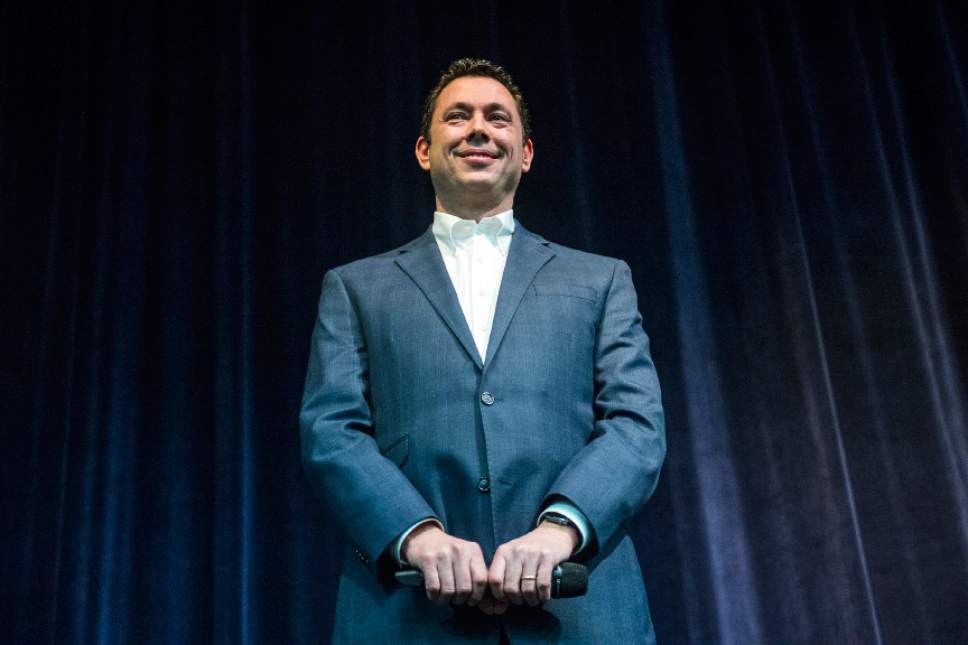This is an archived article that was published on sltrib.com in 2017, and information in the article may be outdated. It is provided only for personal research purposes and may not be reprinted.
Washington • Attorney General Jeff Sessions said Thursday he would recuse himself from any potential investigations involving the U.S. presidential campaign after congressional members — starting with Utah Rep. Jason Chaffetz — called for Sessions' removal from such probes when news emerged that he had met with the Russian ambassador last year despite testifying under oath that he had not met with any officials from the country.
"I do think he's going to need to recuse himself from this issue," Chaffetz, the Republican chairman of the House Oversight and Government Reform Committee, said in an interview after tweeting the same point early Thursday. "Having watched his testimony, I think that's the appropriate action."
Other members of Utah's congressional delegation defended Sessions and said he had already vowed to recuse himself on issues where he has a conflict.
Thursday afternoon, Sessions said he would do just that when it comes to any probes looking at the U.S. presidential election that Russia, according to U.S. intelligence agencies, attempted to sway in favor of President Donald Trump.
"This announcement should not be interpreted as confirmation of the existence of any investigation or suggestive of the scope of any such investigation," Sessions said, adding that the acting deputy attorney general, Dane Boente, would handle such cases if they come up.
While some Democrats called for Sessions to resign for misleading Congress — or perhaps perjuring himself — Trump said he had "total" confidence in Sessions as the nation's top law enforcement officer.
Republican senators, including Utah's, for the most part stuck by Sessions, who served as a senator from Alabama before joining Trump's Cabinet.
"Attorney General Sessions said this morning that he will recuse himself any time and every time it's warranted by the circumstances," said Sen. Mike Lee. "This is someone I trust. I trust him enough to make that determination."
The firestorm started when The Washington Post reported Wednesday evening that Sessions had twice met with Russian Ambassador Sergey Kislyak, though the Alabama senator had denied so during his confirmation hearing. Asked by Sen. Al Franken, D-Minn., about how he would handle learning that officials with Trump's campaign had contacts with Russia, Sessions, a top Trump surrogate, said he wasn't aware of "any of those activities."
"I have been called a surrogate at a time or two in that campaign, and I did not have communications with the Russians," Sessions added.
According to The Associated Press, Sen. Orrin Hatch, a fierce defender of Sessions during the confirmation hearing, responded to Democratic criticism, saying: "My concern is why are our Democratic senators so doggone rude to a former senator who they know is honest."
Hatch later released a statement: "In his confirmation hearing, then-Sen. Sessions was asked whether he had communicated with Russian officials about the presidential campaign and he said 'No.' Having served with Jeff for 20 years and knowing him to be a man of honor and integrity, I take him at his word. The attorney general has since said he would recuse himself wherever necessary. I trust the men and women leading the Intelligence Committee investigation, and I trust Sen. Sessions to do the right thing."
Rep. Chris Stewart, a Utah Republican and member of the House Intelligence Committee, said Sessions had already committed to stepping aside on anything with potential conflicts and that should answer any questions about the Russia meetings.
"Until it is clear that there is a conflict," Stewart said, "we shouldn't jump to conclusions about his ability to be fair and impartial."
While Chaffetz was the first Republican to say Sessions should recuse himself, he didn't go as far as he did with then-Secretary of State Hillary Clinton, whom he suspected of misleading Congress over her use of private email servers.
Chaffetz and House Judiciary Committee Chairman Bob Goodlatte, R-Va., sent a letter to the Justice Department asking that it investigate whether Clinton perjured herself.
"The evidence collected by the FBI during its investigation of Secretary Clinton's use of a personal email system appears to directly contradict several aspects of her sworn testimony," GOP leaders on the panels wrote.
"In light of those contradictions, the department should investigate and determine whether to prosecute Secretary Clinton for violating statutes that prohibit perjury and false statements to Congress, or any other relevant statutes."
While Chaffetz has asked for information about Trump's lease with the U.S. government for his Washington hotel and is seeking a probe into leaked classified materials, the Oversight Committee chairman has refused to open an investigation into Russia's meddling in the election. He says the House Intelligence Committee is best suited to review that.









